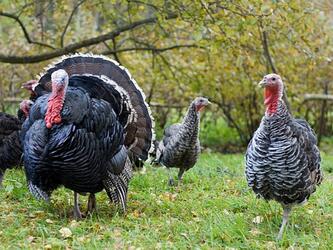What can market research learn from KFC?
The documentary sought to humanise one of the nation’s favourite chicken restaurants – offering the audience a chance to get to the core of the brand, a behind-the-scenes look in-store, in the farms, headquarters, even the toilets. In market research terms, it’s a ‘deep-dive’ into the world of the people who make or break, and consume the deep fried goods.
Two episodes in and you got beneath the surface of the propagandist, reputation-massaging exercise as KFC boldly took viewers through an emotional journey of poorly-housed poultry and an unnecessary amount of food wastage. Just as KFC brazenly embraced full transparency, the ‘caring for the community’ and ‘gold-standard quality’ messages began to emerge. Airtime was given to the ground level employees, those loveable characters selected to represent a passionate, motivated workforce. We were reminded of KFC’s importance not just for its role in employment, but how a KFC meal can promote unity and strengthen relationships amongst friends and families.
What we were confronted with was a reality of the evolution of fast food culture in the developed world – the strong affinity, loyalty and brand love that exists for fried chicken. Every day, millions of people consume KFC despite its treatment of chickens and its effect on waistlines. At the same time, every day millions of people walk around with warped misconceptions of market research, unaware of its value and place in society. Which leads me to think – what can the market industry learn from KFC on changing perceptions and promoting its true worth? How would the industry benefit from a BBC-backed documentary to lose the baggage of what market research stands for, to break down the ambiguity and the negativity? We’re not just a loosely defined, clingy relative of the likes of marketing, brand strategy and advertising, but a wise, resilient, emotionally intelligent, loyal friend, navigating key decisions.
What would a behind-the-scenes of market research look like?
The market research office will be full of productive brainstorming sessions – turning a traditional focus group centred on group Q&A formats to a more games-led approach incorporating engaging challenges and tasks that allow consumers to move around and interact. We are constantly evolving as we strive to get to the heart of the latest consumer thinking.
Research buyers and client organisations would become immersed in the array of methodologies, tools and approaches that we have at our disposal. We are not just qualitative or quantitative. We can be centred on the mobile phone, we can be under-the-skin ethnographies. We are incorporating science and teasing out the subconscious in our efforts to advance understanding.
Swap McDonald’s Marketing Manager Marie Emery’s recent comments: “we need to allow kids to have an understanding of marketing,” with market research. Researchers are a mash-up – not pre-defined by a fixed set of A-levels, university degrees and diplomas that qualify you for the job. We are creative thinkers – proposing, designing and implementing research studies to answer real-life business problems. We are overarching observers, with a holistic viewpoint on the world’s trends, brands, current affairs. We are also decoders – we deduce and explain these phenomena with our emphasis on collecting and connecting data points and looking out for the key patterns. We are people-people, we are fascinated and hooked by what people think and do.
The bread and butter of what we do can only come alive through our stories retold back to our clients. Our stories tell of the increasing digital influence over the climate change debate (ComRes & the Grantham Research Institute on Climate Change and the Environment). They reveal strategies for improving membership size for a global charity (Northstar Research & World Association of Girl guides and Girl scouts). They show that research can be sustainable and allow eye-opening results (PepsiCo’s work in understanding the emerging middle classes in Brazil). We affect businesses and bring foresight to the table.
Forget three-part documentary, the industry has enough characters, narrative and storylines to merit its own TV series – think Game of Thrones or House of Cards. If the fast food industry can come face-to-face with its critics, whether it be health ministers, advertising standards agencies and other fast food rivals and spin the propaganda record, then the market research industry can definitely come out strong on a media profiling of this scale. The perception of market research deserves such a platform and needs to be strengthened among buyers, our peer disciplines (marketing, advertising), future industry talent and research participants; all who will help shape our future.
Lucy Hoang is a senior research executive at Northstar.

We hope you enjoyed this article.
Research Live is published by MRS.
The Market Research Society (MRS) exists to promote and protect the research sector, showcasing how research delivers impact for businesses and government.
Members of MRS enjoy many benefits including tailoured policy guidance, discounts on training and conferences, and access to member-only content.
For example, there's an archive of winning case studies from over a decade of MRS Awards.
Find out more about the benefits of joining MRS here.












0 Comments